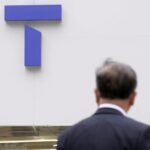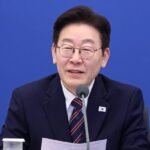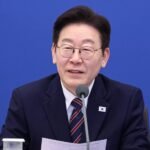
More than 300 South Koreans who were detained in a massive immigration raid at a battery joint venture between Hyundai Motor Co. and LG Energy Solution Ltd. in the US state of Georgia have arrived back home.
Their return comes as Korean President Lee Jae Myung and Hyundai’s chief executive warn about the impact of the raid.
José Muñoz, chief executive of South Korea’s top automaker Hyundai Motor, said on Thursday that construction on the battery production joint venture in Georgia is being delayed due to labor shortages.
The CEO said the work is being set back by at least two to three months following last week’s disruption, according to Bloomberg News and other media outlets.

“For the construction phase of the plants, you need to get specialized people. There are a lot of skills and equipment that you cannot find in the United States,” Muñoz said on the sidelines of an automotive conference in Detroit.
He said the raid will create “a minimum two to three months delay [in opening the factory] because now all these people want to get back.”
PRODUCTION LIKELY TO BEGIN IN 2026
Production, initially slated for the end of this year, is now expected to start in 2026, sources said.
The CEO said Hyundai will try to source batteries from other plants while awaiting the joint venture plant to start up, including from a Georgia plant co-owned with Korean battery-maker SK On Co.

The $4.3 billion Hyundai-LG joint venture, HL-GA Battery Co., is among the largest projects in Georgia and is expected to create 8,500 jobs.
Construction work on the site was suspended following the raid.
The factory is designed to produce 30 GWh of battery cells annually, enough to power 300,000 electric vehicles.
It plans to supply battery cells to make it into battery packs at a Hyundai Mobis Co. factory located inside the Hyundai automotive group’s EV factory, Hyundai Motor Group Metaplant America LLC (HMGMA), which already produces the IONIQ 5 and the new IONIQ 9.
Despite the setback, Muñoz said Hyundai will stick to its long-term commitment to the US, where it has announced investments of more than $8.6 billion, including expanding HMGMA’s annual production capacity to 500,000 units from the current 300,000.

“This was a very unfortunate event, but the strategic importance of the US market for us has not changed,” he said. “We have invested heavily in recent years, and will continue to do so.”
DETAINED KOREANS RETURNED HOME
Meanwhile, more than 300 Korean workers returned home on Friday after a weeklong detention by US immigration authorities in Georgia.
A Korean Air Lines Co. charter plane, carrying 316 Korean nationals and 14 foreigners, landed at Incheon International Airport, west of Seoul, around 3:23 p.m., a day after their release from the detention center in Folkston, Georgia.

Last Thursday, US authorities raided the Hyundai-LG JV and took nearly 500 employees, mostly LG Energy staff, subcontractors and engineers, into custody. The detained employees were alleged to have worked on the site without proper work permits.
None of the people detained last week were directly employed by Hyundai.
The incident, however, has thrown Korea’s flagship investment projects in the US into disarray.
Sources said at least 22 other factory sites involving Korean business groups, in autos, shipbuilding, steel and electrical equipment, have been nearly halted.

Korean conglomerates, including semiconductor giants Samsung Electronics Co. and SK Hynix Inc., are heavily investing in US chip facilities, while Samsung SDI Co. and SK On are building battery plants with their partners GM and Ford, respectively. Several of these sites rely on rotating teams of Korean engineers.
SEOUL’S FOREIGN MINISTER SEEKS US CONGRESS SUPPORT FOR VISA REFORMS
Korean Foreign Minister Cho Hyun, meanwhile, called for steps to prevent a repeat of such an incident and voiced hope the US Congress will support visa reforms for Korean businesses.
Cho met with US Senators Todd Young, Bill Hagerty and Andy Kim in Washington, D.C., between Wednesday and Thursday.

At the meetings, Cho conveyed the Korean government and people’s displeasure with the detentions.
He also called for congressional support for visa reform, especially creating a new visa category for Korean businesspeople, as Seoul and Washington agreed to form a working group to better address the longstanding visa issues.
The senators said they would provide legislative and other support to handle the issue, according to Seoul’s foreign ministry.
At a press conference marking his first 100 days in office on Thursday, Korean President Lee Jae Myung said that Korean companies are “bound to hesitate” to make US investments if similar incidents recur.
By In-Soo Nam
isnam@hankyung.com
Jennifer Nicholson-Breen edited this article.















